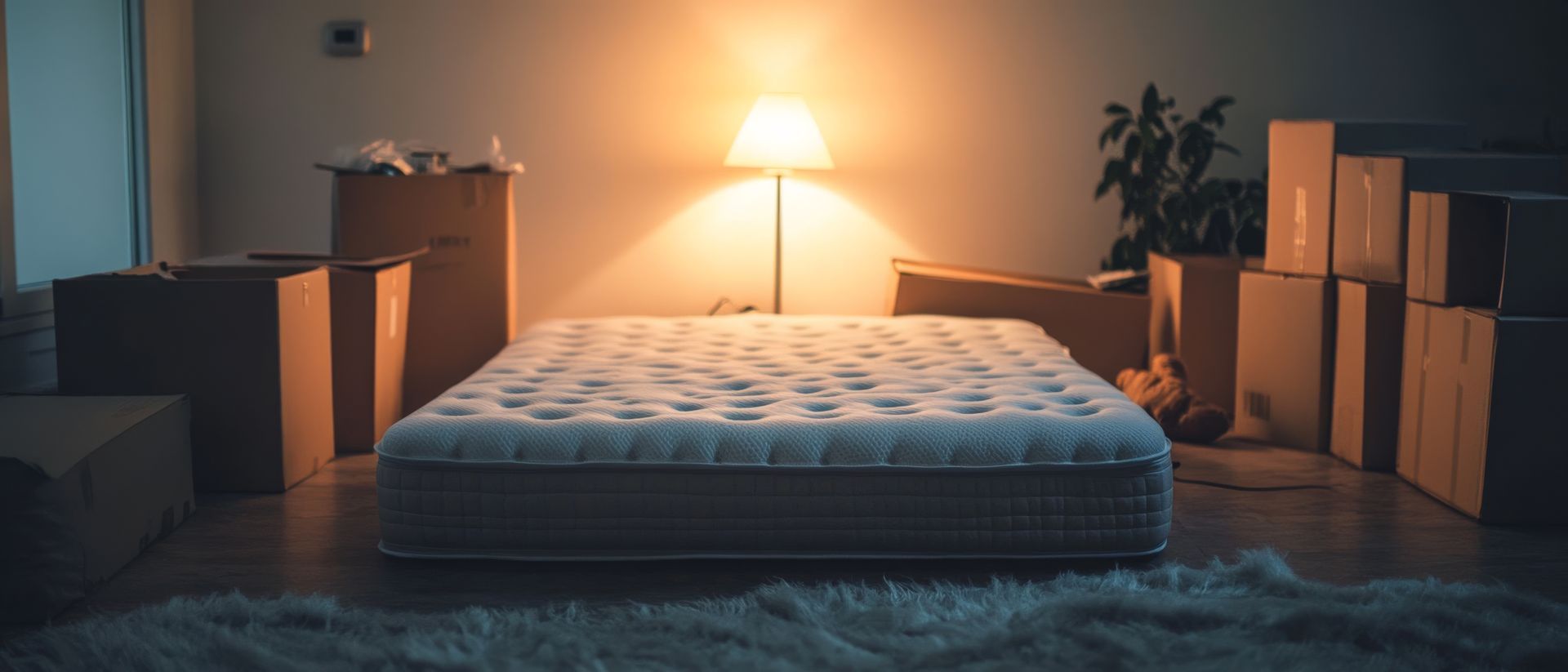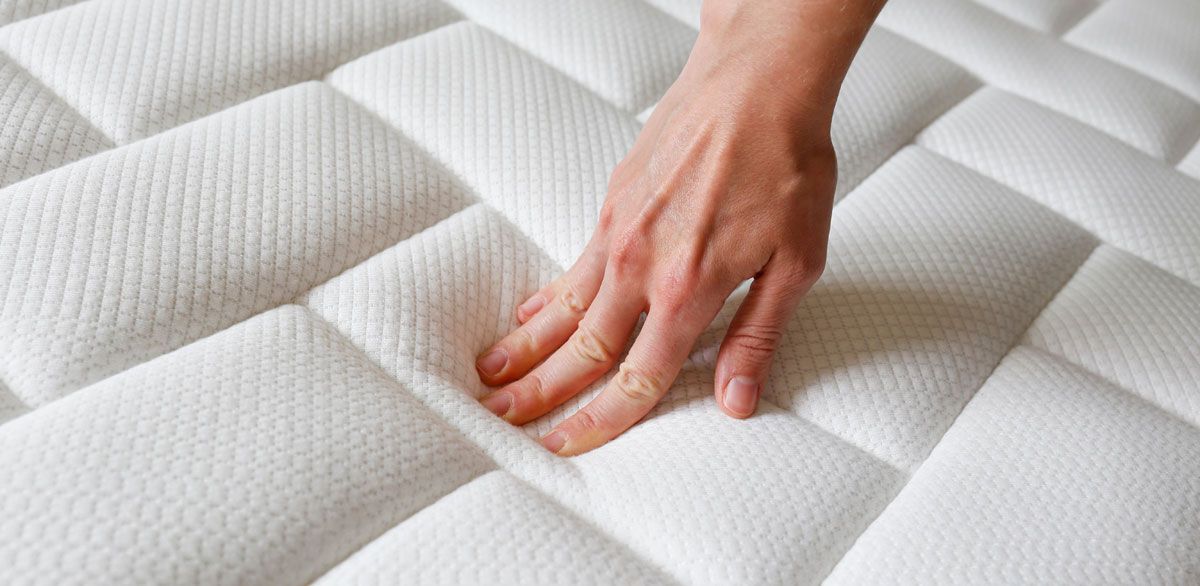
You’ve just moved into your new home or apartment, unpacked the essentials, and finally get a chance to crawl into bed after a long day. But something’s off; your mattress doesn’t feel quite the same. The comfort you counted on seems different, maybe even less supportive. Don’t worry, you’re not imagining things. A mattress can feel different after a move for a variety of reasons.
The Stress of Moving
Mattresses are bulky and not designed to be bent or folded. During a move, even careful movers might bend, compress, or carry a mattress at awkward angles. This can temporarily affect its internal structure. Springs may shift slightly, foam layers can compress and edges may lose some firmness.
In most cases, mattresses “bounce back” after a few days of being flat on a proper base. But if you notice lasting indentations or sagging that wasn’t there before, it could mean the move caused permanent damage.
Foundation and Frame Adjustments
Another major culprit behind mattress feel changes is the support system. If you changed your bed frame, switched from a box spring to a platform base, or temporarily placed your mattress directly on the ground for expediency during a move, you’ve changed how the mattress supports your body.
- Box springs: Provide more “give,” which can make a mattress feel softer.
- Direct-to-floor setup:
Placing a mattress on the floor, even temporarily during a move, changes airflow and firmness. It can feel harder because there’s no flex underneath.
- Platform beds: Offer firmer, more even support, which may make the mattress feel stiffer.
- Adjustable bases: Can alter the angle of sleep and pressure points.
Even if you’re using the same frame, check to ensure it’s properly assembled. Loose screws or uneven slats can create dips that weren’t there before.
Your Body and Sleep Routine
A move is stressful, and your body knows it. Between the heavy lifting, long hours and disrupted routines, your muscles may be tighter or more sensitive to pressure points than usual. That can make your mattress feel different even if nothing has changed.
Additionally, your sleep habits may be shifting:
- Going to bed later due to unpacking or adjusting to a new commute.
- Sleeping in a noisier or quieter neighborhood.
- Adjusting to new light patterns in your bedroom.
The Role of Environment
A new room may have different indoor air quality, and mattresses can be affected by the environment around it. Mattresses are sensitive to changes in room conditions, including:
- Temperature and humidity:
Memory foam and hybrid mattresses, in particular, respond to temperature. A cooler room might make foam feel firmer, while a warmer space can soften it up. If your new bedroom is draftier or more humid than your old one, your mattress may react differently.
- Flooring and room structure: Believe it or not, what’s underneath your bed matters. Carpeting, hardwood, or tile floors all absorb and distribute weight differently. Smaller rooms with less airflow can also impact how your mattress “breathes.”
Sometimes, it just takes a few nights for your mattress to settle into its new environment and feel normal again.
When to Worry
Most of the time, a mattress just needs a few nights to settle into its new environment. But there are times when a change in feel is a red flag. You may need to replace your mattress if:
- The mattress is 7–10 years old and already showed signs of wear before the move.
- You notice permanent sagging, lumps or broken coils.
- Your body feels sore or stiff every morning, even after weeks of adjusting.
- The mattress no longer provides adequate support, leading to back or neck pain.
If you’ve checked the environment, base and your sleep habits, but the mattress still feels off, it may be time for something new.
Tips to Move Your Mattress Without Damaging It
- Use a mattress bag:
A plastic or fabric cover keeps out dirt, moisture, and tears during transport.
- Keep it upright when possible:
Standing the mattress on its side makes it easier to move through doorways without bending or creasing it.
- Avoid folding:
Unless your mattress is specifically designed to bend, folding can damage internal springs or foam layers.
- Secure it properly in the vehicle:
Use straps to keep it from sliding or sagging in transit.
- Protect the corners:
Cardboard or padding around corners prevents rips and scuffs when navigating tight hallways.
- Don’t store it on the floor long-term: If you must set it down, place it on a tarp or blanket to prevent moisture absorption.
Talk to Our Sleep Experts for Your Next Luxury Mattress
If your mattress still feels uncomfortable after your move, it may be time to explore a replacement. Twilight Bedding offers a wide selection of mattresses designed for comfort, support and durability; perfect for adapting to your new space.
You can reach our North Spokane showroom at (509) 926-2333 or our Spokane Valley showroom at (509) 413-2431. We also encourage you to visit one of our locations to try our mattresses in person.






